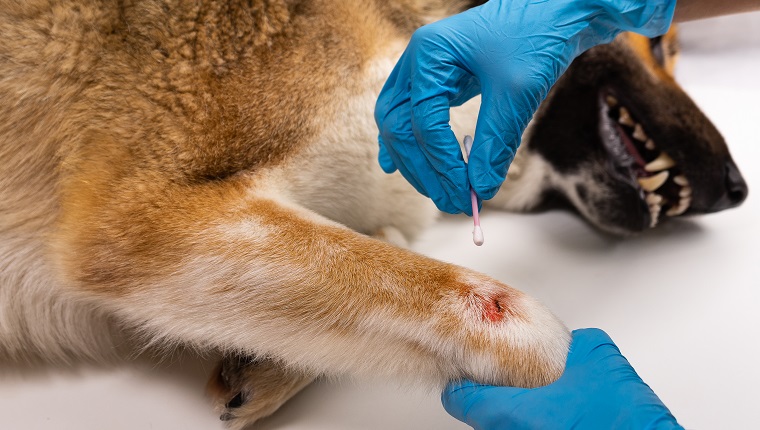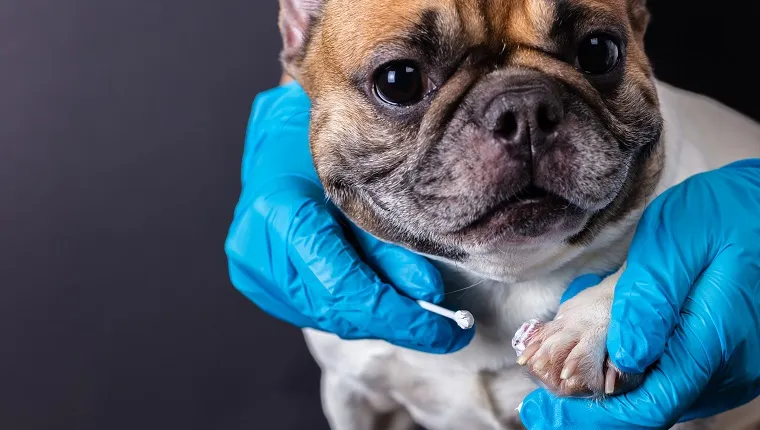Neosporin for dogs, like humans, can be used to prevent minor infections and offer some pain relief for non-emergency cuts, burns, or scrapes. Neosporin is a brand name of the topical treatment Neomycin-Bacitracin-Polymyxin, which other name brands like Mycitracin and Triple Antibiotic also sell.
This topical treatment fights off potential bacterial infections, thanks to antibiotic compounds Neomycin, Bacitracin, and Ploymyxin. Applying a thin coat to your dog’s minor scrapes and cuts can help prevent the surface wound from developing a bacterial infection.
Some brands’ versions of the ointment also have analgesic properties, which help reduce pain at the injury site. However, the topical will not fight off viral or fungal infections on your dog’s skin.
Even though you can buy it as an over-the-counter medicine, you shouldn’t give Neosporin to your dog unless your veterinarian says it’s safe. Follow your vet’s instructions for dosage and administering the medication.
Here’s what you should know about the uses, dosage, and side effects of Neosporin for dogs.
Uses Of Neosporin For Dogs
Many people have a tube of Neosporin in their medicine cabinets for their own minor cuts and burns, which is why it makes sense that many dog parents wonder if they can use the same ointment for their pups.
As long as your dog’s cut, scrape, or burn is minor, meaning it doesn’t require stitches or a compress to stop bleeding, a thin layer of Neosporin can act as a barricade and help keep your dog’s wound from becoming infected by bacteria.
Like with humans, Neosporin should only be used as a topical medication for dogs. Avoid your dog’s eyes, the inside of their ears, and mouth area when applying the ointment to prevent irritation.
You can buy Neosporin here, but as mentioned, you must ask your vet before applying it to your dog.
Dosage Of Neosporin For Dogs

As always, you should consult your veterinarian for proper dosage and instructions before giving your dog medication, including Neosporin.
Even though globbing the ointment on your dog’s cut might seem like a good idea, stick to a thin layer of the medication one to three times a day.
If your dog is prone to licking wounds, you can wrap the cut in a bandage after applying the ointment. If your dog’s abrasion becomes red, itchy, or looks infected after application, then contact your vet for a proper diagnosis and treatment plan.
Side Effects Of Neosporin For Dogs
Although rare, some dogs might experience an allergic reaction to Neosporin. Be sure to test the antibacterial ointment on a small patch of your dog’s skin to make sure they aren’t too sensitive to it.
Applying too much Neosporin can lead to other infections, like fungal infections. Following the recommended application for your dog can help prevent some of these unwanted reactions and side effects.
If your dog accidentally ingests Neosporin, they could experience gastrointestinal symptoms, like vomiting and diarrhea. Be sure to contact your veterinarian ASAP if you think your dog accidentally ate this or any other medication.
Have you ever used Neosporin to treat your dog’s injuries? Did you find that it helped your dog’s cut heal faster? Let us know in the comments below!









